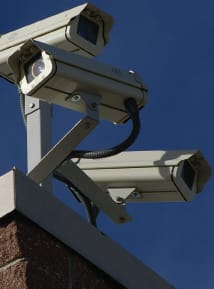MANAGEMENT ESSENTIALS
To focus your staff, you may need help from ‘Big Brother’
Keeping employees from Internet distractions may require implementing new technology.
By Farrell “Toby” Tyson

|
Farrell C. Tyson, MD, FACS, is a refractive cataract/glaucoma eye surgeon at the Cape Coral Eye Center in Florida. He may be reached at tysonfc@hotmail.com. |
Over the last year, our practice watched our Internet network get slower and slower. We tried updating the computers and the software, but to no avail. What once seemed like unlimited bandwidth had become akin to breathing through a straw. Our practice, like many others, requires heavy Internet usage for billing, authorizations, and our cloud-based practice management system.
What we didn’t realize was what our staff were using our Internet access for. Years ago, before Facebook and Twitter, personal e-mail might have eaten up some productivity, but it was not a bandwidth hog. Now, it is not uncommon for our computer-savvy staff to set up music or video streaming on their computers for background entertainment while they work. Add social media with graphic-intensive Web pages and your system quickly slows to a trickle.
BECOMING ‘BIG BROTHER’
On my trip out to ASCRS I saw an ad at the airport for a Web-filtering network appliance. It was touted as an easy-to-setup-and-maintain device that not only filters out malware and spyware, but also managed which sites could be visited. I ordered one and, in less than a day, had it plugged in between my network switch and router.
USING THE TECHNOLOGY
Initially, I set it up in “audit mode,” which allowed me to monitor the bandwidth usage and sites visited by each computer. What I found surprised me, but then maybe it shouldn’t have. Facebook, Twitter, Pintrest, and even Amazon and E-bay were common. The large degree of activity on dating sites coming from my practice was, perhaps, most surprising.
Then, I proceeded to turn the device to “active mode,” blocking access to selected sites. This could be done by selecting categories such as social media, pornography, or streaming media. In addition, one could select specific sites for denial of access. Certain users or computers could be given different access rights that are more lenient or restrictive. Once these permissions were implemented, an initial spike in blocked sites was seen as users tried to find what they could and couldn’t access. Then, the masses calmed and we noticed a return to good network speeds and productivity.
JUSTIFICATION
This may seem Orwellian and, in particular, reminiscent of 1984, in which the government invades all aspects of daily life. But doctors and practice managers are responsible for what goes on inside their practices.
If, for example, one staff member brings up inappropriate material and other employees see it, a harassment lawsuit could be on the horizon. Sometimes it is better to prevent an incident. And, needless to say, staff productivity also increases when the opportunity for distraction is removed.

Technology has made us more productive, but it has also added potential distractions. New technologies can help refocus your staff back to the task at hand. OM








